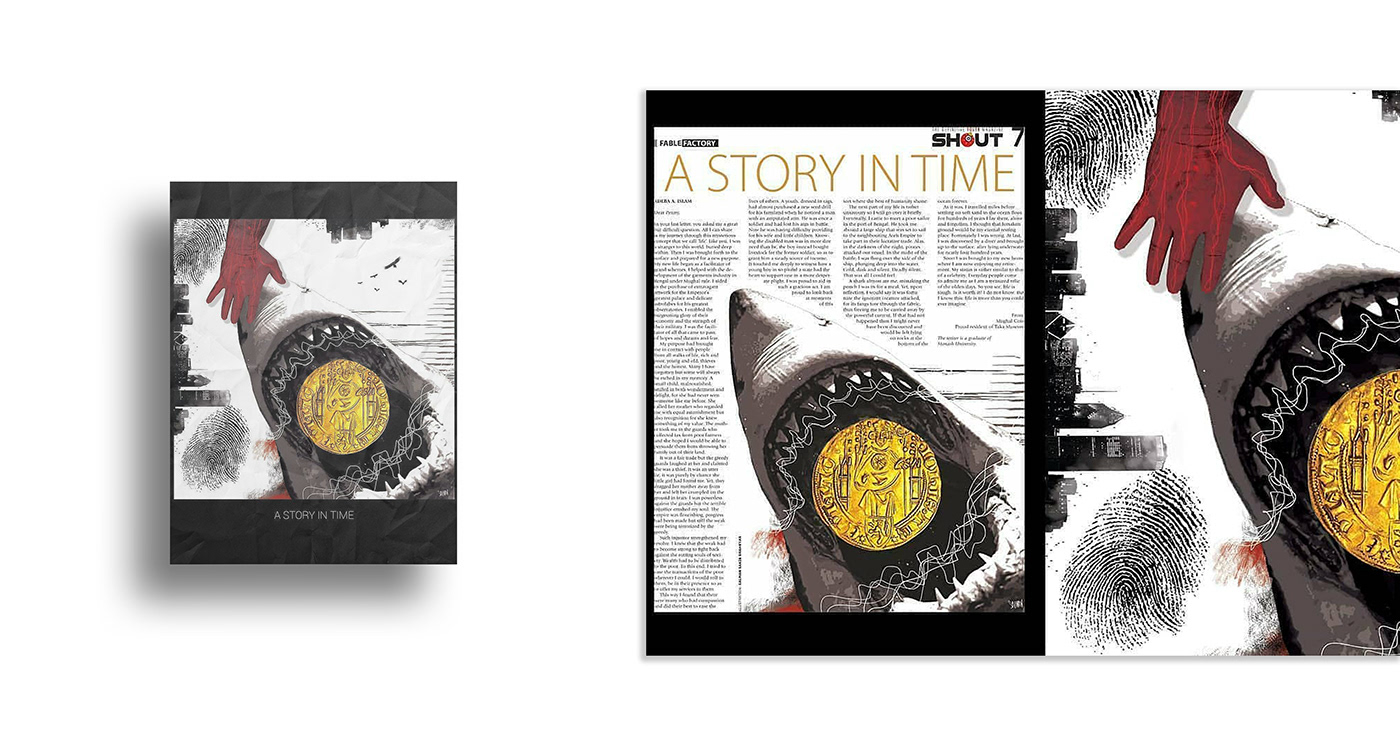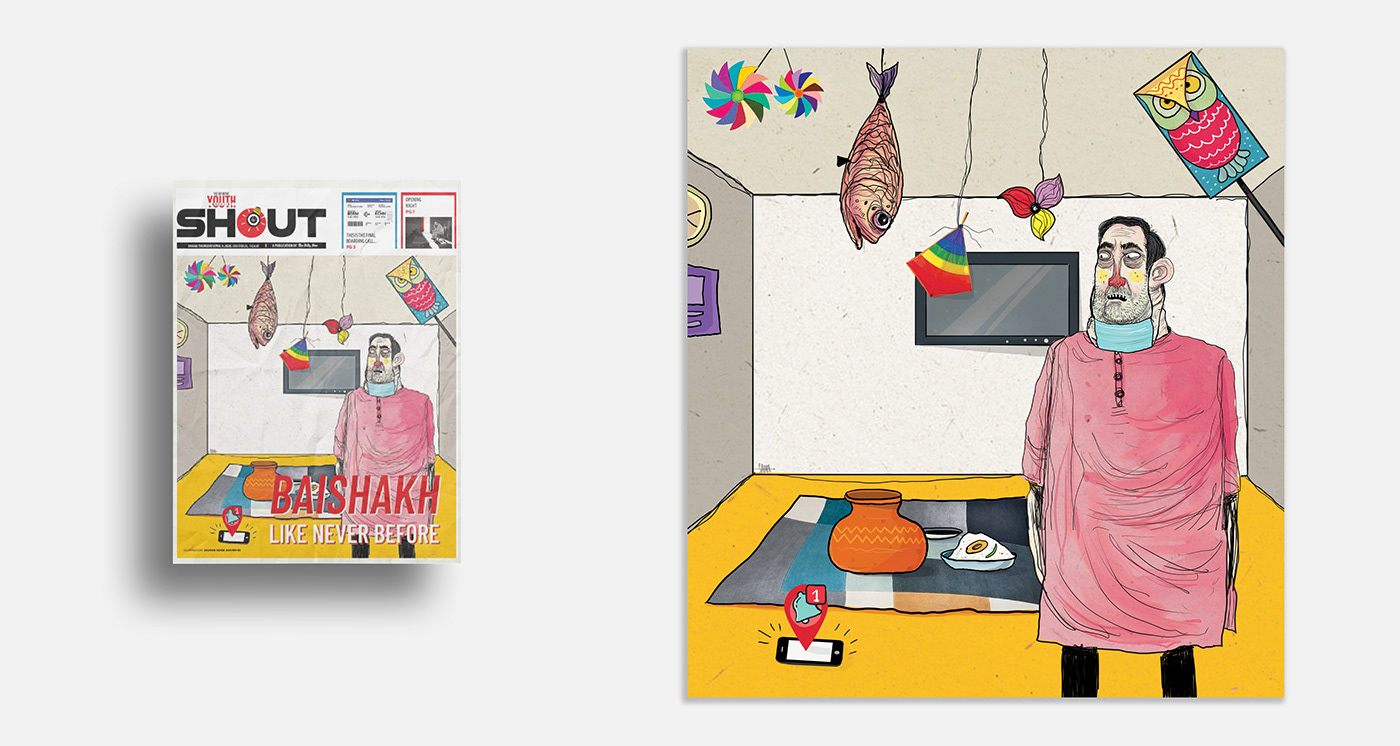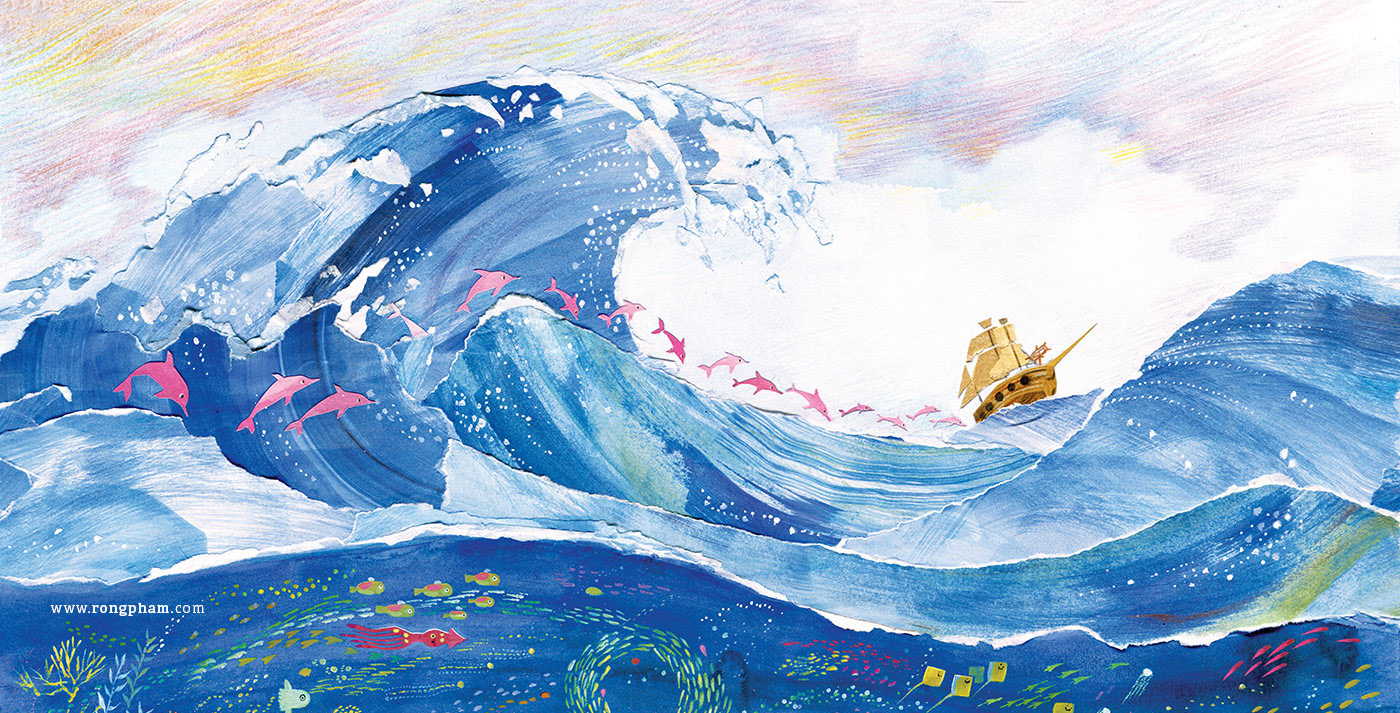

A compilation of all the cover and inner illustrations I've done in 2020 for Daily Star's weekly youth supplement SHOUT

Dear Penny,
In your last letter, you asked me a great but difficult question. All I can share is my journey through this mysterious concept that we call ‘life’. Like you, I was a stranger to this world, buried deep within. Then I was brought forth to the surface and prepared for a new purpose. My new life began as a facilitator of grand schemes. I helped with the development of the garments industry in Bengal under Mughal rule. I aided in the purchase of extravagant artwork for the Emperor’s greatest palace and delicate astrolabes for his greatest observatories. I enabled the burgeoning glory of their economy and the strength of their military. I was the facilitator of all that came to pass; of hopes and dreams and fear.

In this village bordered by a sprawling tea plantation, many say that they have seen the leopard. Mostly during the night, when the moon hangs so low you can pluck it right off the darkness and eat it like some fruit.
Black. Glossy in the moonlight. Its white whiskers asserting an implicit, involuntary dominance. Its supple body effortlessly sliding up and down the teak trees that are abundant here. A shadow – a dark emissary of the night – drifting among the plant kingdom like a fugitive.
Those who have not seen the leopard, wish to believe that it is a false imagination – one that has consolidated itself in the leopard watchers' consciousness like an unbreakable stone. They wish to believe that it must have been a civet. Or a marbled fishing cat. Or simply a black cat.

For as long as I can remember, my grandfather would tell me about the events surrounding his migration from Sahasram, a city in Bihar, India. He'd tell me about the struggles he faced with his rights as a migrant all on his own, about the difficulties that his children, my father and his siblings, had to go through, trying to identify as one with the rest of the Bangladeshi citizens.
Growing up, I almost always reacted to my grandfather's stories with insensitivity and dismissed them as ancient history. I didn't think it would ever have an effect on my life in any way. "Why should I bother with ancestors I've never met or with the ancestral lands I've never set foot on?", I'd think to myself. After all, I was a Bangladeshi citizen, born and raised in this country.
Oh, how wrong I was!

When on-campus academic activities were brought to a halt back in March, no one knew how long we would have to wait for things to go back to normal. Assuming the worst case scenario, education institutes all over the world took the decision to move classes online, where they would interact with their students through virtual meeting rooms, over platforms such as Zoom, Google Meet and Microsoft Teams, and carry on with their lessons accordingly.

The sheer amount of information regarding Covid-19 has been, is, and might well continue to be, overwhelming. Even as I write this, I got a "breaking news" about the death toll in a country surpassing a dangerously high number, all the while knowing that the death toll in another place or the same place might be even higher in a period of time as early as next week. News outlets have created new podcasts just to spread information about Covid-19; even YouTube has a link to the WHO website and a Covid-19 section on its homepage to help out in this crisis. While we live in an age where more people than ever before publish the truth, we also live in a time where more people than ever before can publish falsehoods—intentionally or unintentionally.

The nation-wide celebrations of Pahela Baishakh — the most significant festival of the Bengali calendar — will not take place this year. As sad as it sounds, we have to come to terms with it. Covid-19 has stalled the entire world, and with growing concerns over community transmission and how social gatherings can accelerate the spread of the virus, cancelling the celebrations was the only viable option.
There is, however, ways you can actually celebrate the event. If online classes and work from home can be a thing, why not "bashay boshe Baishakh?" As odd and unsatisfying it may sound, this is perhaps the only way we will able to keep our minds off the panic, and celebrate the festivities from within the safety of our home. Here's how.

Covid-19 continues to haunt our daily lives. Different events and mass gatherings are either cancelled or have been postponed indefinitely due to the high risk posed by the coronavirus. The same, however, cannot be done in the case of the month of Ramadan, which is why we must take necessary measures and precautions as we enter the holy month.
But where do we start, and just how do we bring ourselves into accepting that Ramadan will not be the same this year?

Ma comes home with a tiny little piece of haluwa wrapped in taut plastic—the kind you get at hospitals. She holds it up in the air, her fingers a jeweller's vice, and says, "See the haluwa?"
"No," I reply.
She stretches out her arm as far as it can possibly go, and as if the haluwa is in control of this operation now, it leads her straight onto the only light bulb in the room. "Now?"
"I can't see anything," I reply.
"Come closer, then."
THANK YOU!


